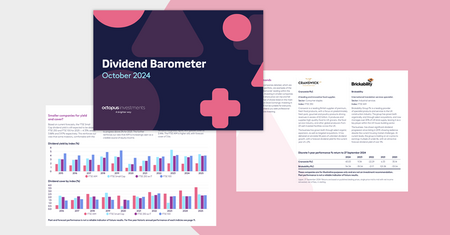It’s common for people to find inheritance tax confusing. That’s why many put off having a discussion about it.
“What is the residence nil rate band?” “Will my ISA be taxed?” “What even is inheritance tax?”
These are just some of the questions that come up time and time again.
But here’s the thing – inheritance tax doesn’t have to be complicated.
This article will give you a good overview of the basics and help you feel prepared for a meeting with your financial adviser, who will help you understand your own position in detail.
You could have an inheritance tax liability without realising it
There are lots of misconceptions out there when it comes to how inheritance tax might affect what you can pass on when you pass away.
For example, most assume that ISAs can be passed on free from inheritance tax because of their other tax benefits. But ISAs are counted as part of your estate for inheritance tax purposes and so could trigger an unwanted bill for your beneficiaries.
The residence nil rate band is another area that can cause confusion. More on that a little later.
Maybe the biggest misconception of all, though, is that inheritance tax is something only extremely wealthy people need to think about. The reality is, however, that many more of us will have an inheritance tax problem due to rising house and asset prices – we just don’t know it.
Firstly, what is inheritance tax and who pays it?
Inheritance tax is a 40% charge that applies to the estate of someone when they die. It’s the responsibility of those who administer your estate (your executors or personal representatives) to pay any tax due before your remaining estate can be passed to your beneficiaries.
So, what’s taxed exactly?
Typically, pretty much everything. Your ‘estate’ can include:
- Your house and any other properties you own.
- Any savings or investments.
- All other assets that people sometimes think are exempt, such as your car, antiques, furniture, or jewellery.
Whether or not tax will be payable on your estate depends on the total value of everything you own when you die, as well as who you leave it to.
What amount can I leave without paying inheritance tax?
First you can leave any amount to your spouse or civil partner. This is completely exempt from inheritance tax and often means that little or no inheritance tax is due when the first spouse dies.
Next, if the amount you leave to others is valued at £325,000 or less when you pass away, there won’t be any inheritance tax to pay. This is known as the nil rate band and is your primary allowance when it comes to your inheritance tax liability.
Anything over the £325,000 threshold will be subject to a 40% inheritance tax charge.
What happens when my spouse passes away?
Your spouse or civil partner will also be entitled to a nil rate band of £325,000. If you leave all of your estate to your spouse, your own nilr rate band will not have been used, so your spouse or civil partner will inherit your personal nil rate band in addition to their own. If your estate used up part of your nil rate band, your spouse will inherit the portion that was not used.
So, for married couples and civil partners, an estate of up to £650,000 can be left free from inheritance tax, using both nil rate bands.
If you’re unmarried, any assets left to your partner will be subject to inheritance tax and if your estate does not use all of your nil rate band, the balance cannot be transferred to your partner.
The residence nil rate band
There is another significant allowance that comes into play which could help you keep more of your estate in the family.
It’s a relatively new allowance (effective as of 6 April 2017) that helps homeowners pass on more of their wealth – called the residence nil rate band.
It allows up to £175,000 of the value of your main home – or £350,000 if you’re a couple – to be passed on free of inheritance tax.
Therefore, a married couple or civil partners could pass on up to £1 million before their estate owes any inheritance tax, by using their two nil rate bands and two residence nil rate bands.
There are, however, quite a few conditions. We’ve set the basics out below, but this is certainly an area where it is worth seeking advice from your adviser to ensure your will is set up to make the best use of this generous allowance.
To benefit from the residence nil rate band on your death you must leave a home as part of your estate to your children or grandchildren. And that home must be somewhere you have lived as your main residence at some point – meaning it can’t be a buy-to-let property or holiday home. Like the nil rate band, if you leave your home to your spouse and they leave it to children or grandchildren, their estate will be entitled to the residence nil rate band allowance in respect of both of you.
If your total estate is valued at more than £2 million when you die, you’ll lose £1 of the residence nil rate band for every £2 over the threshold.
Now that we’ve covered allowances available for your home, the main asset for most people, what about the two big pots most people build up over their lifetime – pensions and ISAs?
Inheritance tax treatment of your pension
This depends on the type of pension you have.
If you have a defined benefit pension (a fixed percentage of your final salary paid for the remainder of your lifetime), the benefit belongs to you, and sometimes to your spouse if they survive you. It typically can’t be left to anyone else after you die.
For defined contribution pensions (an investment you’ve built up during your working years), you have more options.
You can choose to take up to 25% of this pot tax free during your lifetime.
You can purchase an annuity. An annuity pays you an income for life, but it cannot usually be left to your beneficiaries after you die.
Since 2014, it has been more widely possible to ‘draw down’ on your pension instead of using it to purchase an annuity. If you do this, any balance of your pension that you have not drawn down when you die is likely to be able to be left to your beneficiaries.
Making the decision about what to do with your pension can be very complicated and is important to get right, so its important to take financial advice to reach the right decision for you.
If you choose to leave your pension pot to your beneficiaries, it will be exempt from inheritance tax. However, if you die after turning 75, income tax will be payable by the beneficiary as they draw funds from it, taxed at their marginal rate.
Unfortunately, your ISA is not exempt from inheritance tax
If you’ve been contributing to an Individual Savings Accounts (ISA) over the years, you could unwittingly be sitting on a substantial inheritance tax liability.
ISAs offer attractive tax benefits over your lifetime. But when you die, anything you’ve saved in an ISA is part of your estate for inheritance tax purposes.
This is important to remember because many people aren’t aware that ISAs are not exempt and so fail to factor them in when working out whether they need to talk to their adviser about estate planning.
Start your estate planning
This article has covered the basics of inheritance tax and how your estate is treated when you pass away.
If you suspect inheritance tax will affect your family, get in touch with your financial adviser.
By starting the estate planning discussion, you’re taking the first steps to ensure your wealth passes on to your loved ones as efficiently as possible.
To read about the different estate planning options available, have a read of the next blog post in this series: Practical steps to prepare your estate for loved ones, Understanding Business Relief and Your estate planning options.
We do not offer investment or tax advice. We recommend investors seek professional advice before deciding to invest.
Related inheritance tax resources

Inheritance tax and Business Relief education hub
We’ve worked with tens of thousands of financial advisers to help develop their knowledge in specialist tax-efficient investments. Through quality education, advisers can help their clients achieve their financial goals through smart planning.

The Value Navigator series
This three-part webinar series will help you advise your clients and help you grow your estate planning business.








